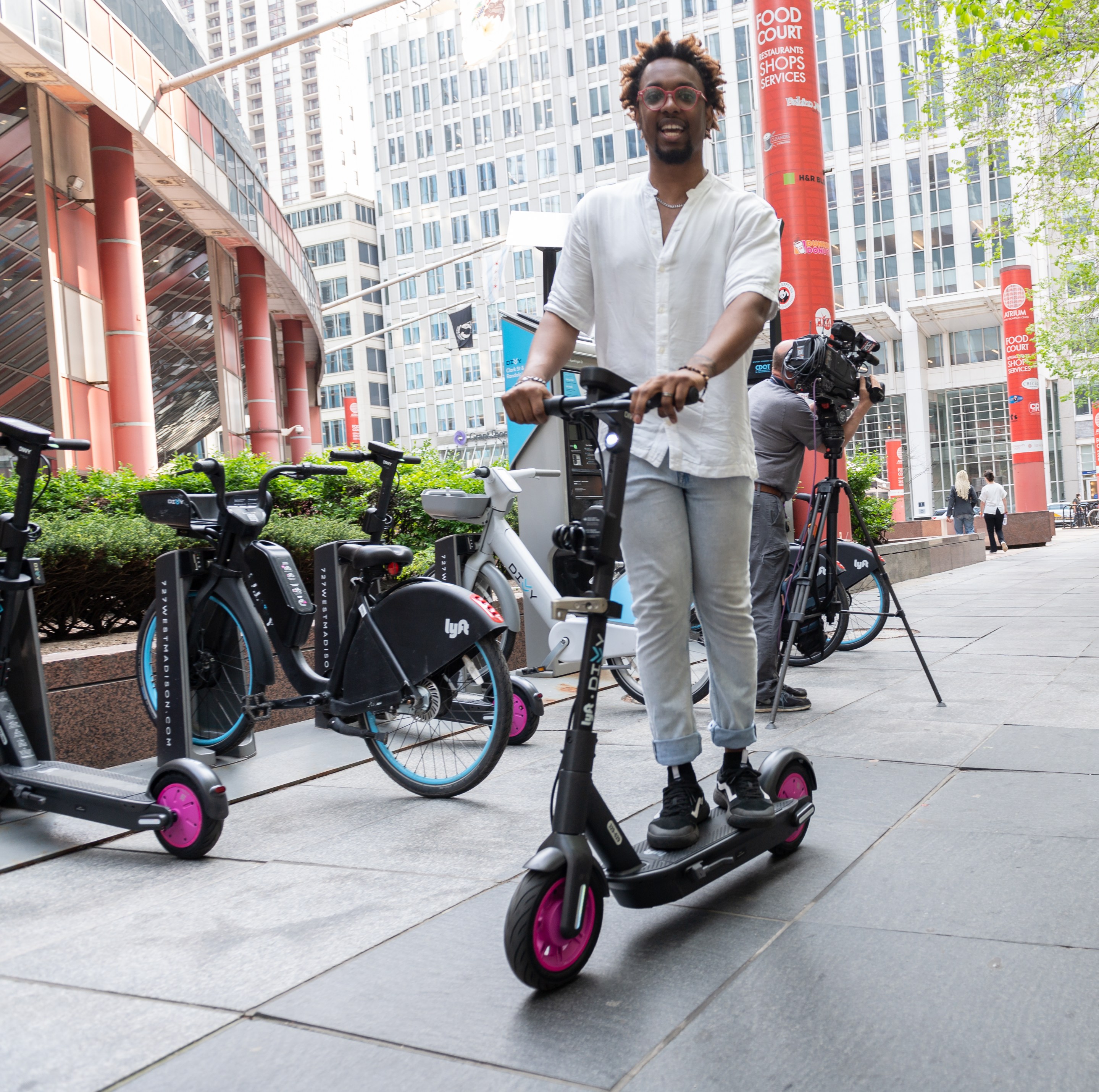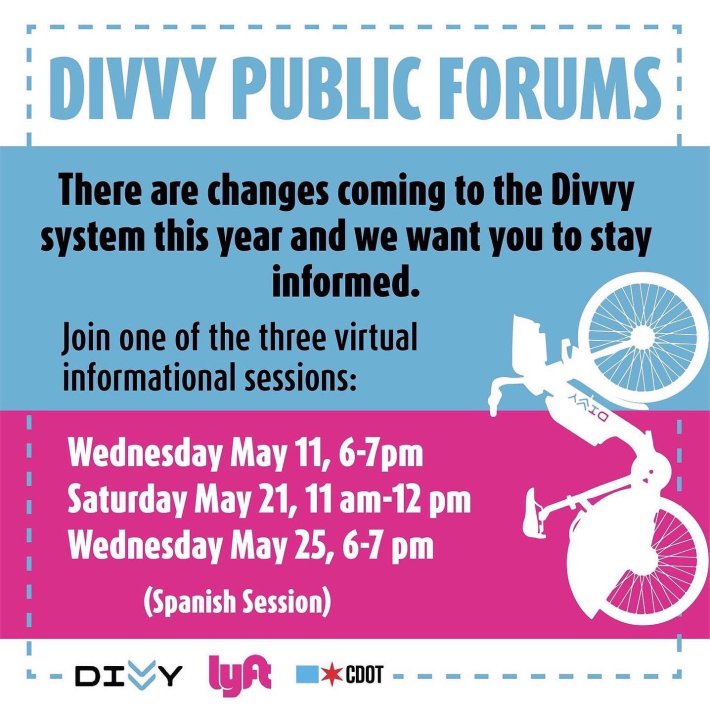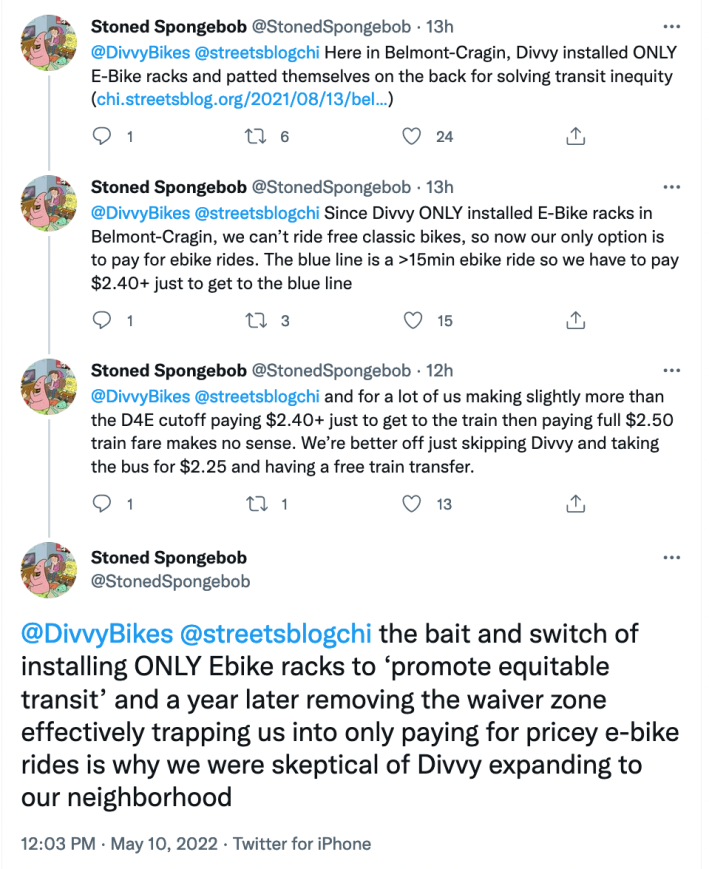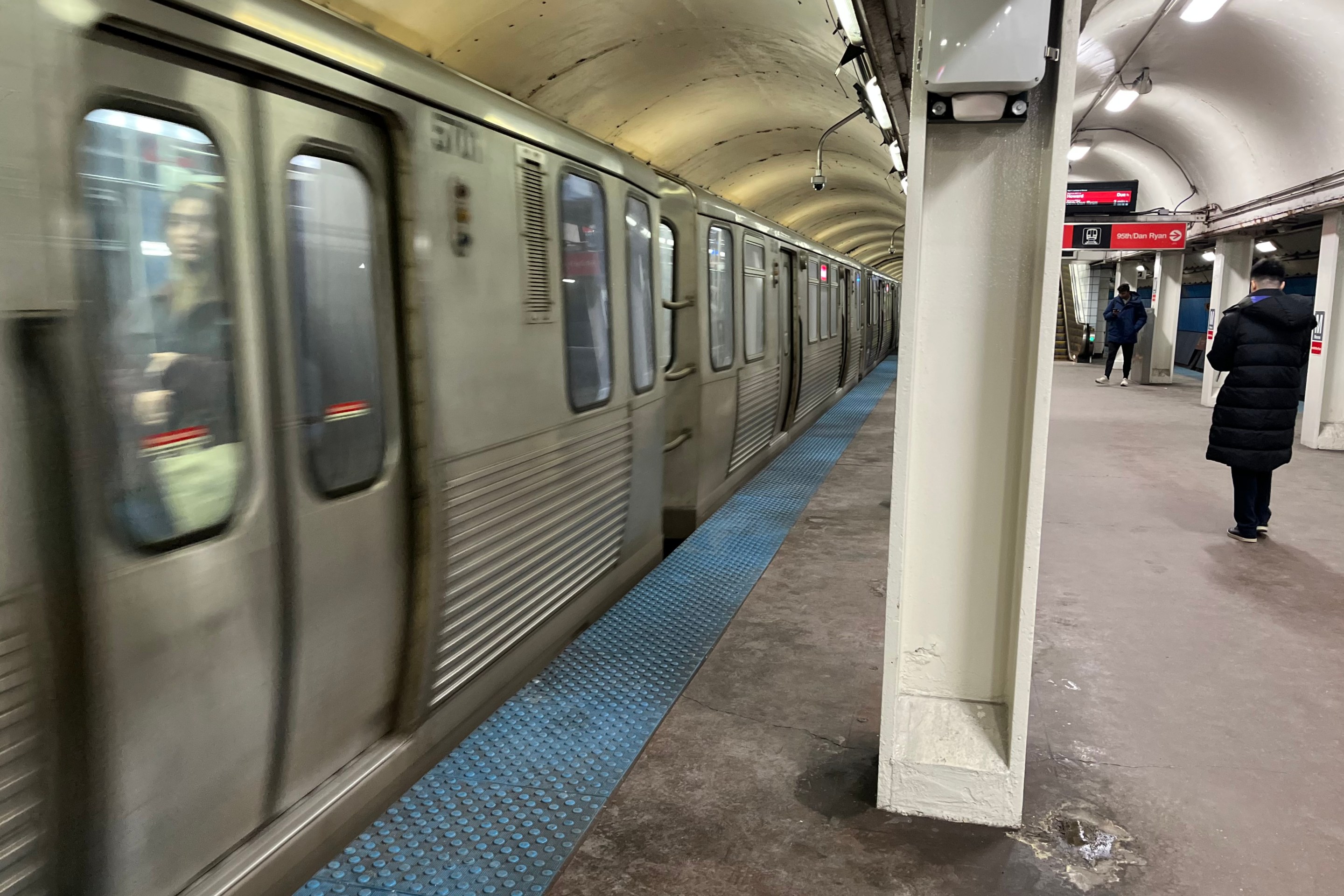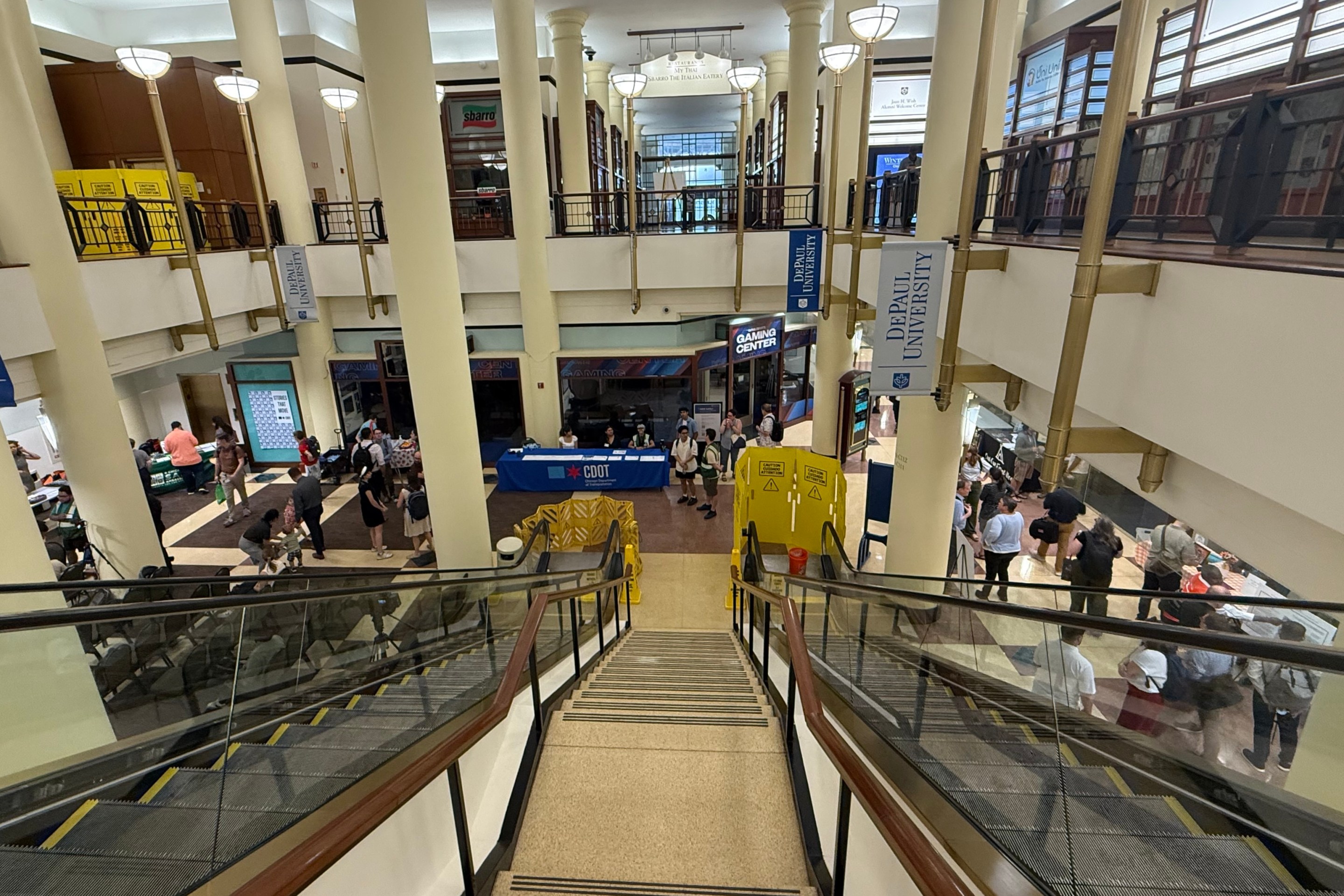Do this week's balmy temperatures have you wishing you had more options for getting around the city car-free, but also sweat-free?
Good news: Yesterday the city of Chicago and Lyft, which runs the publicly-owned Divvy bike-share system, launched what they say is the first docked electric scooter-share program in the nation, creating a breezy new way to get around.
Casting a shadow over the announcement somewhat is the fact Divvy also quietly kicked off its new pricing structure, which means everyone now has to pay a per-minute charge to use the system's electric bikes, anywhere in the city. There are some measures to help soften the blow of the new fees. However, some bike-share users still argue the new policies aren't fair – more on that in a minute.
The scooter launch
Yesterday morning city officials and Lyft staff held a ribbon cutting for the scooters at the Thompson Center, designed by architect Helmut Jahn, who tragically died in a bike crash one year ago in west-suburban Campton Hills.
The zones were off the app map today https://t.co/Gxa6oadzif
— ugh (@kqskqs) May 11, 2022
Divvy is hosting some online public forums on the new pricing structure this month, but these are simply information sessions. "New updates in the Divvy system are rolling out this year and we want you to be informed!" the registration page states. "Participate in one of the three Public Forums to learn more about the changes in pricing, stations, memberships, and more. This will be an opportunity to get all your questions answered."
There's no indication that the city and Lyft will consider changing the fee structure as a result of feedback from these forums. So does it really make sense to hold these events after the price change has already kicked in?
Before the fee structure changed, some members were already complaining that long e-bike commutes they were used to doing for free, because they started or ended in the waiver zone, will now be prohibitively expensive. In some cases these people have the option of instead using the non-electric blue bikes, which still have no per-minute use fee for members.
But as I noted last month, the biggest downside of the new pricing system is for people making over $35,310 who live in outlying neighborhoods with no traditional docking stations, only "E-stations" and other designated bike racks for tethering the electric bikes. There are no plans to install full-service stations in these areas. In contrast to their counterparts in station-rich neighborhoods, they have no choice but to use e-bikes and rack up per-minute fees when they want to ride a Divvy cycle near their home. And unlike D4E members, regular Divvy members in the former waiver zone don’t get the $10 in free monthly credit. So they're sort of getting the worst of both worlds.
Here's a thread from a person who says they live in Belmont Cragin, a Far Northwest Side community where there are no blue bikes, who reached a similar conclusion. They noted that the situation will be especially problematic for working people who make more than the D4E income limit, but not by much.
So was there a more fair way to update the pricing structure? I did a little spitballing on Twitter, wondering if would make sense Divvy waive the per-minute e-bike for D4E members everywhere in the city and regular members who live in the non-blue bike zone, but keep the fee in place for members in the blue bike zone
"How about the city subsidizes it a bit more (with federal help?) and every member rides 45 minutes free on every bike?" responded William Reed. "So non-low-income people are paying [the $119 annual membership fee.] Seems to me it would reduce car traffic, reduce emissions, and make for a public investment that would pay for itself."
"Right, is the goal profit or is the goal mode-shift?" seconded Streetsblog freelancer Steven Lucy.
Indeed, it would be much better if the city and Divvy come up with a pricing structure that encourages ridership, rather than suppressing it. If that requires using more public funding to subsidize the system, that would be money well-spent.
